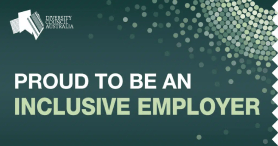Thankfully, we’ve come a long way in terms of how society perceives disability – but there is still further to go.
We know the importance of focusing on the person first, not just their disability. We understand the negativity that comes with stereotypes, and we work to remove such barriers and assumptions to create a more inclusive society.
Which is why a recent LinkedIn post by Employ For Ability principal neurodiversity consultant Kate Halpin struck a chord. She raised the issue of microaggressions – indirect, subtle, or unintentional discrimination against a marginalised group.
The problem with microaggression
Kate says microaggressions are everyday reminders of common stereotypes, especially relating to mistaken assumptions about people living with a disability. She says often it can be unintended, yet still “devalues and limits the potential” of people with disability – and that many deep-rooted beliefs about disability must change.
She shared a graphic from the Royal Pharmaceutical Society website showing examples of disability-related microaggressions – which prompted us to look at ways we can overcome this.
Turn the table on microaggression
Here are some suggestions for positive attitudes and behaviours to help create a more inclusive society for people living with disability:
- Accept that a person with a disability will likely need some supports, or concessions, to achieve their full potential – they are not just being “difficult”. Ensure they have the right support they need to fully participate as an equal.
- At the same time, understand they are often more capable than they might seem. If someone who relies on a wheelchair for mobility says they don’t need your help, believe them.
- Forget the stereotypes and approach someone with a disability with an open mind – find out who are they as a person, and what are they capable of.
- Speak to them in the same manner as you would any other person. If they decline a handshake or avoid eye contact, don’t make a fuss – simply carry on your conversation.
- Treat them the same as anyone else in the room. Because they are.
- Give them time to speak and make their point when needed.
- Include them in work projects and seek their input. Everyone has strengths and weaknesses, so do people living with a disability – often they are more skilled in many ways.
- Accept not everyone is good at speaking in front of a crowd.
- Focus on what they are good at.
- Include them in meetings with senior management or clients if their position, experience or skills warrants them being invited.
- Give people with intellectual impairments enough instruction, guidance and time to learn new tasks – people with intellectual disability are capable of being learners.
- Understand that not joining in the office birthday celebration may mean that your colleague doesn’t like crowds or noise – not that they don’t like you.
- Choose a disability-friendly venue for a gathering – such as a wheelchair-accessible restaurant – to ensure they are not just included in your invitation but able to attend. If they were vegan, you would choose a restaurant with appropriate menu options.
- Make sure any equipment that is designed to assist a person with a disability is always available to them – and that includes not using disability access parking spaces or bathrooms even if “no one needed it at the time”.
We are advocates for enabling people with any form of disability to live life to the best of their ability – and having the right environments in which to thrive. Contact one of our friendly experts to find out more.





